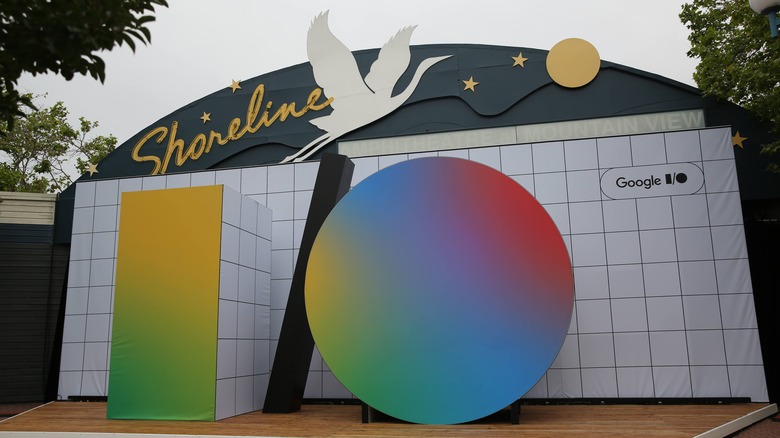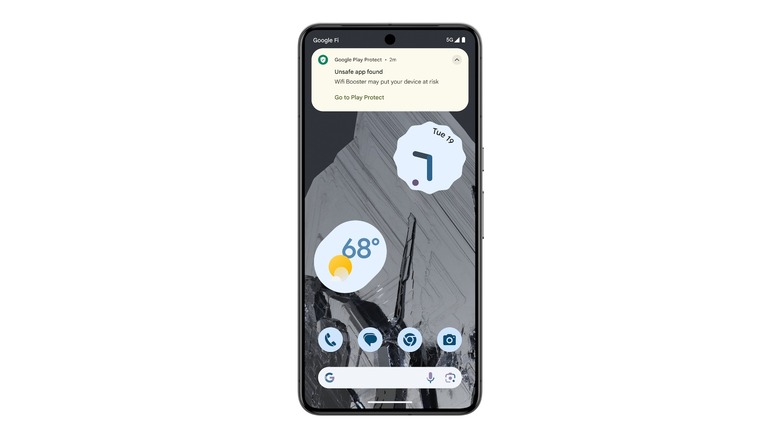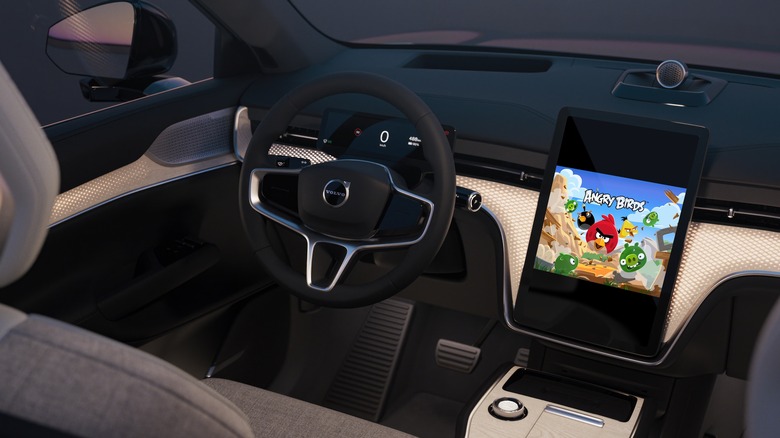The Top 4 Google IO Announcements That Weren't Confusing AI
On Tuesday, the keynote for 2024's Google IO event at the legendary Shoreline Amphitheater in Mountain View, California had a clear, overarching theme. That was Google's investment in all sorts of new AI features for its products. Some of them had clear use cases while bringing other questions to mind, like the Google's new AI that will listen to phone calls and warn you about scams that it detects. (Google swear's it's fully on-device without any security concerns.) The new "Ask Photos" feature in Google Photos for searching and mining information from your photo library looks promising, but the jury will likely be out on if it's any good until it's widely available. But other AI tools felt unneeded, like using video uploads to search, where the demonstration overcomplicated a relatively mundane problem (how to balance the tonearm on a modern vinyl record turntable that had the model number visible on its housing).
Not everything announced during Google IO was about confusing AI features that nobody asked for, though. On Tuesday, Google announced a bunch of new features and guidelines across Google TV, Android Auto, and the classic mobile version of Android. Some looked pretty useful, including various security features designed to help with all kinds of threats, including the physical theft of your phone. Let's take a look at the ones that jumped out the most as the most noteworthy, particularly in light of Tuesday's mind-numbing presentation.
Android 14 is coming to Google TV, complete with picture in picture
Outside of the AI announcements, the biggest new feature announced at Google IO in terms of impacting the day-to-day end user experience arguably comes as part of the news that Android 14 is coming to Google TV. If nothing else, Google says that it's tweaked the smart TV operating system to provide "a snappier, more responsive TV experience," which is needed because the Google TV UI can lag on more underpowered budget sets. With that also comes new accessibility and power saving features, like now being able to wake a Google TV set over your home network, but the sexiest new feature involves how the OS handles multitasking.
As Google's blog post lays out, "qualified Android 14 TV models" now support picture-in-picture mode for multitasking. Though it hasn't been a particularly common feature on new TVs in a long time, a showpiece feature of TVs in the 1990s and early 2000s was TVs that let you watch a windowed, silent version of an alternate input source — a cable box, VCR, DVD player, a second included tuner, etc. — overlaid on top of the show. This took up the whole screen with sound. Bringing the functionality back via Google TV is a tantalizing prospect, one that should no doubt delight sports fans, and should also help make for a smoother experience in switching between streaming apps and background apps like VPNs.
New antitheft features make it harder for phone thieves to see your data
Google also announced that Android is getting some updates to better protect your data if a thief manages to steal your phone, putting the base Android product more in line with Samsung's anti-theft features for its Galaxy phones. Some of these features are designed to become common knowledge among thieves to deter them from stealing your phone in the first place. If a thief manages to get your device to factory reset, it will still need your device credentials or Google account login to be set up as new, lessening its value for resale on the black market.
In the upcoming Android 15, Google has also added "private space," which lets you use a second PIN on top of your device PIN to secure sensitive apps, like those dealing with health and banking, as well as making it so that disabling "Find My Device," or extended the screen timeout period needs your PIN, password, or biometrics. These new settings also require your biometrics to access "critical Google account and device settings," like changing your PIN or disabling the anti-theft protections.
A Google Play Services update will also make it so that Android 10 devices or newer can detect when your phone has been snatched by a thief and act accordingly after this sudden movement of running, biking, or driving. The same update will also add additional protections if it detects similarly unusual behaviors. That same Google Play Services update, meanwhile, will also add additional secure ways to remote lock your phone if the stress of losing it makes it so you can't remember your password.
Increased live threat protection against malware and scammers on Android
In addition to the new protections against thieves who get physical access to your device, Google also announced that it is adding new protections against software and social engineering-based intrusions. First and foremost, Google Play Protect will be updated so that "[its] on-device AI will analyze additional behavioral signals related to the use of sensitive permissions and interactions with other apps and services." Curiously, the list of brands that will be adopting this feature later in 2024 was missing some notable Android OEMs. Google Pixel, Oppo, Honor, Lenovo (Motorola), OnePlus, Nothing, Transsion, and Sharp were the only ones listed, with no sign of Samsung (the biggest player), Asus, TCL, Nokia, Sony, or ZTE.
Google is also making it so that one-time passwords are now hidden from notifications and requiring additional safeguards when sideloading apps, but the most interesting developments come in Google's efforts to stop scammers. Android will now notify you if your cellular connection is unencrypted and thus prone to interception, as well as if they run afoul of fake cell towers. Google is also extending some of its security tools to developers so that they can have their apps check for screen recorders or other potential intrusions, consult Google Play Protect, and receive warnings of anomalies that are often attack signatures.
These features join Android's new on-device AI detection of common scams in phone calls, which was announced during Tuesday's keynote. Google swears that the AI listening to phone calls cannot extend beyond your device, and if they're telling the truth, it could be a useful feature for those more vulnerable to social engineering.
Android Auto is getting app quality tiers and Angry Birds
Another notable change comes in how Google announced that it is handling apps that are developed for Android Auto going forward. Google is introducing three quality tiers of car apps, similar to how it has tiers for large screen apps: Car differentiated, car optimized, and car ready. Differentiated "represents the best of what's possible in cars" and can adapt to not just driving and parked modes, but also different screen sizes and types. Optimized represents "Most apps available in cars today" and are best represented on the center stack display. Car ready represents apps that don't necessarily have car-specific features but can be enjoyed while the car is parked with a similar experience to that of other Android devices.
Google also announced some notable apps that are being ported over to Android Auto as 2024 goes on. The less-surprising ones are for streaming video services Max and Peacock, as well as the Uber Driver app, which is available now. But there's also a port of legendary mobile game "Angry Birds" coming to what the announcement describes as "select cars with Google built-in." In addition, Google Cast is being added to Android Auto for multimedia apps to be enjoyed in parked mode.




